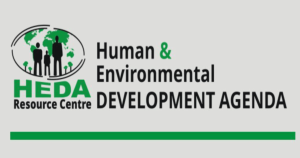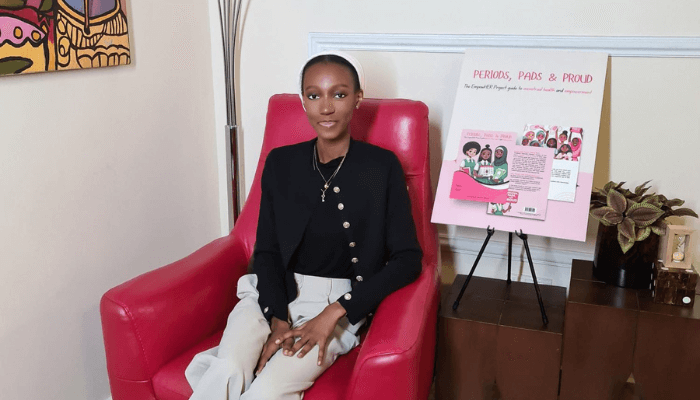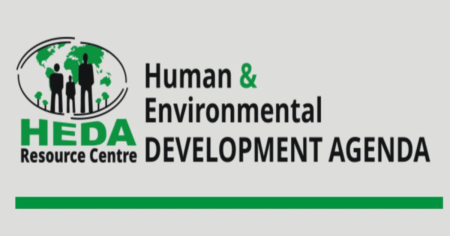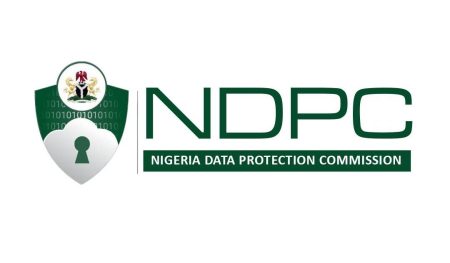The EmpowerHer Project, a youth advocacy group, is championing a critical cause in Nigeria: the integration of menstrual health education into school curricula nationwide. This call to action stems from the unfortunate reality that many young girls in the country face significant challenges related to menstruation, including missed school days, feelings of shame, and a lack of access to necessary resources. The organization underscores the importance of empowering girls with knowledge and confidence to manage their periods with dignity, breaking the silence and stigma surrounding this natural biological process. This proactive approach seeks to create a supportive and informed environment where girls can thrive without the burden of unnecessary hardship due to their menstrual cycle.
The launch of the book “Periods, Pads and Proud” in Port Harcourt serves as a pivotal moment in this advocacy campaign. The book aims to be an accessible and informative resource for young girls, providing comprehensive knowledge about menstruation, dispelling myths and taboos, and promoting healthy practices. It’s a significant step towards normalizing conversations about menstruation and fostering a culture of openness and understanding. The EmpowerHer Project is driving this movement for change through interactive health talks in schools and communities, distributing free menstrual products, and promoting the use of sustainable, eco-friendly alternatives like reusable sanitary pads. This multifaceted approach addresses both the practical and educational needs of young girls, ensuring they have the resources and information needed to manage their periods effectively.
The impact of the EmpowerHer Project’s work is already evident, with over 3,000 girls across 11 schools and communities benefiting from their initiatives. Their holistic approach involves not only educating girls but also engaging teachers, parents, and communities in challenging harmful societal norms and misconceptions about menstruation. By fostering a broader societal understanding, the project aims to create a more supportive environment where girls feel comfortable discussing their experiences and seeking assistance when needed. This collaborative approach ensures that the message of menstrual health reaches beyond the classroom, embedding it within the fabric of the community.
Dr. Chinedu Nwaodu, the Director of Quality Assurance at the Rivers State Ministry of Education, echoed the importance of menstrual health education and acknowledged the existing resources within the state’s educational system. While affirming that secondary schools in Rivers State are equipped with the necessary facilities and that the topic is included in the curriculum, she emphasized the responsibility of both teachers and parents in effectively educating girls about menstruation. Dr. Nwaodu’s call to action highlights the crucial role of educators and families in reinforcing the information provided in schools and ensuring that girls receive accurate and comprehensive knowledge from trusted sources. This combined approach strengthens the foundation of menstrual health education and promotes open dialogue within the family unit.
The anecdote shared by Dr. Nwaodu, about a young girl confiding in her father about her first period rather than her mother, underscores the prevailing discomfort surrounding menstrual health discussions, even within families. This highlights the urgent need to break down these communication barriers and foster an environment where girls feel comfortable discussing their experiences with their mothers and other female role models. Dr. Nwaodu also implored school principals to actively monitor their teachers’ engagement with the topic, ensuring that female students receive proper guidance and support. This emphasizes the vital role of school leadership in prioritizing menstrual health education and creating a safe and supportive learning environment for all students.
Professor Kaladada Korubo, a Professor of Haematology at Rivers State University, provided a positive review of the “Periods, Pads and Proud” book, emphasizing its value in providing comprehensive information about the female reproductive system and menstruation. She highlighted the book’s accessibility, particularly for young girls who may be unfamiliar with these topics. The book serves as a valuable tool for empowering girls with knowledge, enabling them to understand their bodies and manage their menstrual cycles with confidence. Professor Korubo’s endorsement reinforces the book’s significance as an educational resource and emphasizes its potential to positively impact young girls’ understanding of their own reproductive health. Her observations further underscore the need for open communication and education, even within families, to address the prevailing knowledge gap regarding menstruation. The book, in essence, acts as a catalyst for initiating these crucial conversations.














